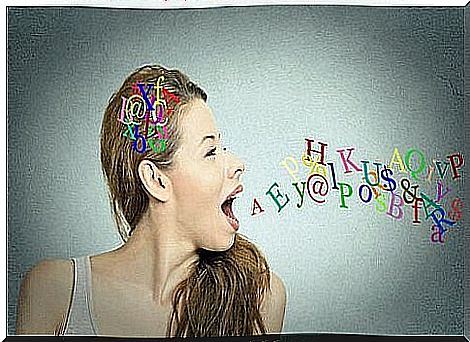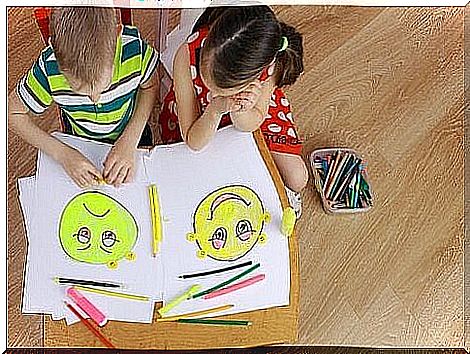Emotional Literacy: Understanding And Expressing Our Emotions

Understanding how you feel is not always easy. Although some of us can do better than others, the emotional arena remains a complete mystery to us all. This is why emotional literacy is so important.
No one has ever taught us what emotions are, why we have them, or how to identify them. There are no subjects in school that talk about them. Our feelings were not even seen as important for our education, where we just accepted that other people could tell us what to do. Our feelings and emotions have gone unnoticed for years, but little by little they have begun to get the attention they deserve.
In addition to being social creatures, we are also emotional beings. This means that the way you treat inner feelings determines how you feel. Now we want to take a closer look at what emotional literacy really is.
What is emotional literacy?
Literacy usually goes hand in hand with the process of teaching someone to read or write. These are some of the basic skills that come with having a good education. But it also seems that this concept has branched out in different directions depending on what you are trying to teach. For example, there is information, scientific and technological literacy.
One of the most important, most interesting challenges for our health and happiness is “emotional literacy”. It’s a learning process that involves emotions, and it starts at school.

Emotional literacy means teaching people what emotions are, what they are for, and how to express them. It means teaching people to understand themselves and others on an emotional level. This is a pedagogical challenge that an increasing number of schools and kindergartens are tackling with educational programs about emotions.
In addition, you can use the terms emotional literacy and emotional education as synonyms. They are like two trains with different names, but the same destination.
Authors such as Daniel Goleman and Rafael Bisquerra have a real interest in developing this concept. Goleman says that education about character, moral development and societal tasks go hand in hand with emotional literacy and education about emotional intelligence.
Emotional reading skills give you the ability to deal with disruptive behavior, aggression and conflict in your relationships with other people. After all, lack of emotional skills usually goes hand in hand with such problems. This is why they are likely to happen less often if we educate people about emotions.
The goals of emotional literacy
In addition to helping people explore the world of emotions, emotional literacy has some concrete goals, which are to:
- Identify cases of poor emotional behavior.
- Find out what emotions are and how to recognize them in other people.
- Learn to classify emotions.
- Regulate and cope with emotional levels.
- Develop tolerance for frustrations in everyday life.
- Prevent abuse of addictive substances and other risky behaviors.
- Develop resistance.
- Take a positive attitude towards life.
- Prevent interpersonal conflicts.
There are also authors who point to different goals, such as learning about empathy, emotional self-control and procrastination. All these positive entries do not just play a role in your own well-being. They also play a role in other people’s well-being.

The benefits of emotional literacy
Understanding our emotions better makes us smarter so we can be happier. It’s a kind of total intelligence that’s not just about cognitive things. It absolutely must also have emotional and behavioral parts.
By that we mean that it’s not just important to look at how you feel. It is also important to look at how it expresses itself and how you should deal with the information your emotions send you. Ultimately, the way you deal with them will play a big role in your mental health.
It is not just children who benefit from this teaching and learning process. The teachers, and the whole educational environment, also benefit from teaching this subject. Even parents can get something out of it if they work with their children on what their children learned in class.
Emotional reading skills are a major challenge. But it also means that it is a great opportunity. It is a valuable way to get to know yourself and others. It is an awakening that is definitely worth the effort.









